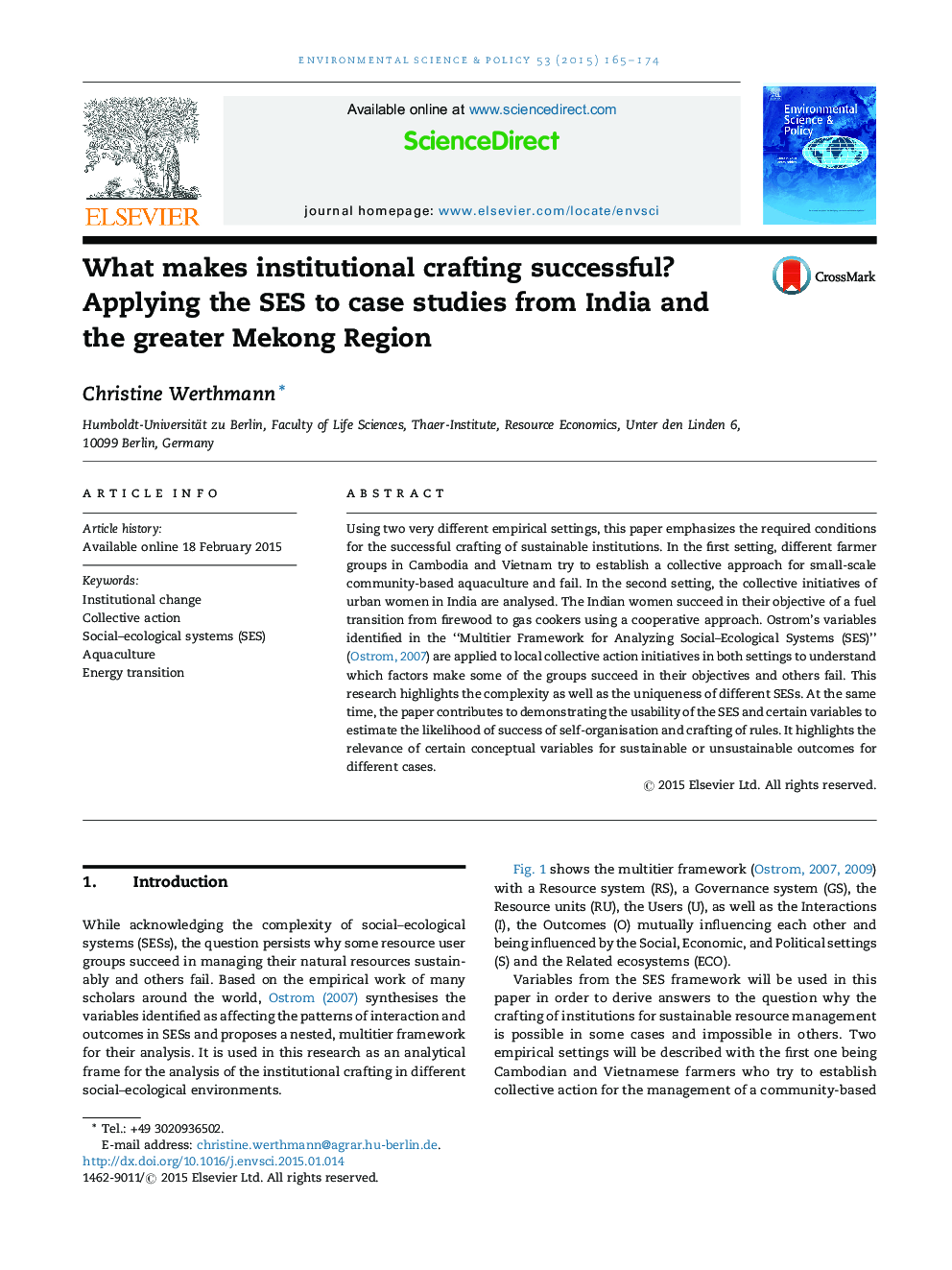| Article ID | Journal | Published Year | Pages | File Type |
|---|---|---|---|---|
| 10504583 | Environmental Science & Policy | 2015 | 10 Pages |
Abstract
Using two very different empirical settings, this paper emphasizes the required conditions for the successful crafting of sustainable institutions. In the first setting, different farmer groups in Cambodia and Vietnam try to establish a collective approach for small-scale community-based aquaculture and fail. In the second setting, the collective initiatives of urban women in India are analysed. The Indian women succeed in their objective of a fuel transition from firewood to gas cookers using a cooperative approach. Ostrom's variables identified in the “Multitier Framework for Analyzing Social-Ecological Systems (SES)” (Ostrom, 2007) are applied to local collective action initiatives in both settings to understand which factors make some of the groups succeed in their objectives and others fail. This research highlights the complexity as well as the uniqueness of different SESs. At the same time, the paper contributes to demonstrating the usability of the SES and certain variables to estimate the likelihood of success of self-organisation and crafting of rules. It highlights the relevance of certain conceptual variables for sustainable or unsustainable outcomes for different cases.
Related Topics
Physical Sciences and Engineering
Energy
Renewable Energy, Sustainability and the Environment
Authors
Christine Werthmann,
